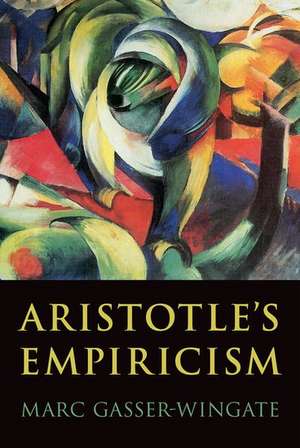Aristotle's Empiricism
Autor Marc Gasser-Wingateen Limba Engleză Hardback – 24 sep 2021
Preț: 436.15 lei
Preț vechi: 484.58 lei
-10% Nou
Puncte Express: 654
Preț estimativ în valută:
83.46€ • 89.24$ • 69.59£
83.46€ • 89.24$ • 69.59£
Carte disponibilă
Livrare economică 17-24 martie
Preluare comenzi: 021 569.72.76
Specificații
ISBN-13: 9780197567456
ISBN-10: 0197567452
Pagini: 272
Dimensiuni: 213 x 147 x 25 mm
Greutate: 0.43 kg
Editura: Oxford University Press
Colecția OUP USA
Locul publicării:New York, United States
ISBN-10: 0197567452
Pagini: 272
Dimensiuni: 213 x 147 x 25 mm
Greutate: 0.43 kg
Editura: Oxford University Press
Colecția OUP USA
Locul publicării:New York, United States
Recenzii
The book is a guide to Aristotle, but one that differs from more conventional, "rationalist" guides since its starting point is different. And it is not only the author's perspective which differs radically from the prevailing view, but maybe also the motivation behind his writing: by proposing a new reading of Aristotle, he is also restoring some unfortunately forgotten Ancient interpretations and problems.
The book under review is an intelligent and philosophically sophisticated attempt to argue for the view that Aristotle is committed to.
This book will be essential reading for anyone interested in the rationalism/empiricism debate in Aristotle.
The book under review is an intelligent and philosophically sophisticated attempt to argue for the view that Aristotle is committed to.
This book will be essential reading for anyone interested in the rationalism/empiricism debate in Aristotle.
Notă biografică
Marc Gasser-Wingate is an Assistant Professor in the Department of Philosophy at Boston University.
